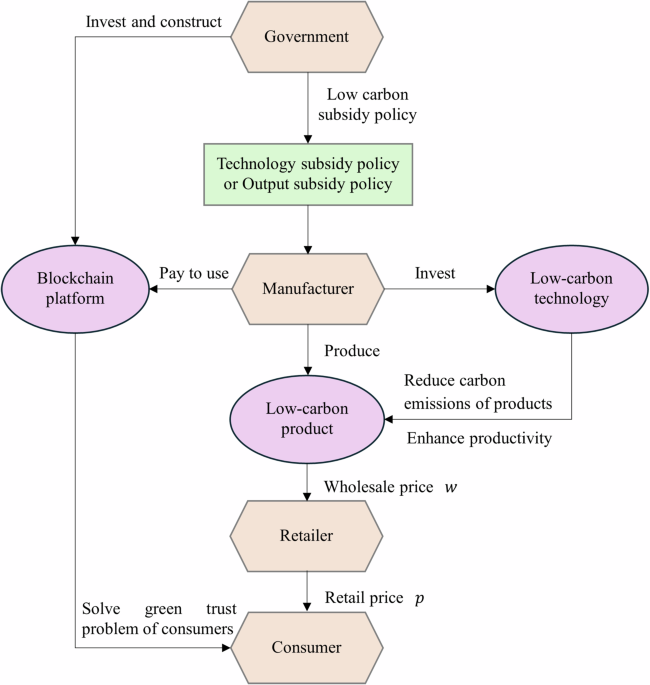How Businesses Are Leveraging Blockchain for Security and Transparency

Trust and transparency are the two new pillars of sustainable business, which is the case in the digital economy today. As there is an increasing number of cyber fraud, data breaches, and compliance failures, businesses are being pressured to ensure that their systems are secure and that they are also transparent to the stakeholders. This is where blockchain technology has come in as a game changer, changing the way organizations store, verify, and share information.
Blockchain is not only a decentralized registry, but a safe and unalterable system upon which companies can trust to establish trustworthiness and simplify regulatory measures. In the banking sector, supply chain, and healthcare, among many others, organizations are moving toward blockchain solutions not only to enhance efficiency but also to build trust and reduce the risk of fraud. We should discuss the way blockchain assists companies in gaining a higher level of security and transparency.
Good Read: 17+1 Top Blockchain Development Companies in 2025
Building Trust Through Immutable Records
The most important aspect of blockchain is that it can establish unchangeable records. All the transactions in the blockchain are time-stamped and cannot be modified without network-wide agreement. This provides the businesses with a sure means to show genuineness and responsibility, and it becomes simpler to gain trust of the customers, the regulators, and the investors.

In the case of such industries as supply chain and finance, such transparency is priceless. Customers will be able to track the path of a product, regulators will be able to ensure that compliance is being met without delays, and stakeholders will be able to be confident that data has not been tampered with. This removes the uncertainties that blockchain can be a trust-creating mechanism where traditional systems may fail to deliver.
Fraud Prevention With Decentralized Systems
Fraud, be it identity theft, financial manipulation, or counterfeit goods, is one of the largest threats that businesses have ever encountered. Decentralized data storage reduces these risks, which is achieved through blockchain. Because information is not stored in one place but is shared over a network, it is much more difficult to manipulate records by malicious actors.
This decentralized security system renders blockchain a powerful defense against fraud. It might be avoiding the risk of a second payment in the digital payment system or making sure that medical records are genuine blockchain minimizes the weaknesses that centralized databases tend to reveal. The use of blockchain as a first line of defense in preventing fraud is becoming more popular among companies that strongly focus on this area.
Compliance Advantages of Blockchain
Compliance with regulations is increasingly becoming a challenge to businesses in all sectors. Since GDPR in Europe and HIPAA in healthcare, businesses are forced to demonstrate that they are responsible and secure in their data handling. Blockchain also makes compliance easier as it offers transparent and auditable records that can be easily verified by the regulators.

All transactions are recorded with precision, and thus businesses can show compliance without having to perform a lot of manual reporting. This saves time and resources in addition to minimising chances of errors. In such tightly controlled sectors as banking, insurance, and pharmaceuticals, blockchain can provide a more effective method to comply with the requirements, and still keep the operations transparent.
Evaluating Use Cases Across Industries
Blockchain does not apply to cryptocurrency. It is being used to address trust and security issues in businesses in various sectors. Finance Blockchain can be used in the financial industry to handle safe cross-border transactions without intermediaries, lowering expenses and time loss. In the medical field, it keeps patient records secure and only accessible to authorized personnel, improving privacy and transparency.
Concurrently, within the supply chain, blockchain enables the parties to monitor goods from their source to the destination. This minimizes the chances of counterfeiting, provides ethical sourcing, and instills consumer confidence. Blockchain helps in overcoming the challenges that are present in the real world, and that cannot be managed effectively by traditional systems because of their inability to share data verifiably and securely.
Team Expertise and Development Partners
The application of blockchain solutions needs more than common IT development skills. The development of strong solutions usually requires multidisciplinary teams, such as blockchain architects, developers, security specialists, and compliance experts, to develop well-developed solutions. The selection of the appropriate partner might make or break a successful deployment and stalled initiative.
This is the reason why numerous companies choose to hire blockchain developers or even partner with a dedicated Blockchain Development Company. These partners are not only skilled in terms of technical expertise but also industry-based experience, which makes the blockchain solutions scalable, compliant, and aligned to business strategic objectives.
Smart Contracts for Automated Trust
Smart contracts, which are self-executing contracts coded on the blockchain, are one of the most transformative things about blockchain. These do away with the need to have intermediaries because they automatically implement rules when the conditions are satisfied. This significantly minimizes the chances of manipulations or conflicts, and also accelerates transactions.
A Smart Contract Development Company can assist businesses in writing contracts that suit them. Be it automated payments, supply contract management, or compliance checkpoints, smart contracts offer a safe and transparent platform of trust-based interactions in the digital era.
Pitfalls to Avoid in Blockchain Adoption (Pointers Section)
While blockchain offers numerous benefits, businesses must be cautious of common pitfalls:
- Implementing blockchain without clear objectives or ROI analysis
- Choosing hype-driven solutions instead of practical applications
- Ignoring scalability and interoperability with existing systems
- Overlooking compliance and legal frameworks in certain jurisdictions
- Partnering with inexperienced vendors lacking domain expertise
By avoiding these mistakes, businesses can ensure that their blockchain initiatives deliver sustainable value rather than short-lived experiments.
Shortlisting and Decision-Making
When you are thinking about adopting blockchain, begin by defining business problems where trust and security are the most important. The second step is to shortlist partners on the basis of their technical skills, experience in the industry, and capacity to match solutions with compliance needs. Develop a grading grid that rates prospective partners based on quantifiable factors like scalability, transparency and long-term support.
After shortlisting, ask for proposals and proof-of-concepts to understand how various providers solve your use case. References of previous clients should also be checked to make sure that the vendor has achieved quantifiable results. This systematic approach will make sure that your blockchain journey is on a good foundation.
The Future of Blockchain in Business
The future of blockchain extends far beyond digital currencies. With the ongoing use of AI, IoT, and cloud computing by businesses, blockchain will emerge as the reliable foundation that will secure transactions and compliance. Blockchain is also becoming of increasing interest to governments and regulators to enhance oversight and accountability.
To companies, the future is in integrating blockchain with other technologies to form some of the most formidable ecosystems of trust and transparency. With the increased adoption, blockchain will cease to be a competitive edge but a business requirement to be credible and strong in a digital-first economy.
Final Thoughts
Blockchain is changing the way businesses consider trust, fraud prevention, and compliance. It is decentralized, transparent, and tamper-proof, making it an unmatched solution to organizations aiming to enhance security and earn the trust of stakeholders. Nevertheless, it is only possible to achieve the advantages of blockchain through the proper strategy and partners.
Regardless of the type of collaboration you have with either a consulting partner or a development team or both, the most important thing is to concentrate on practical use cases that have direct implications on your business. In this way, you will be able to use blockchain not only as a technology trend but as the basis of long-term trust, efficiency, and sustainable growth.
link






